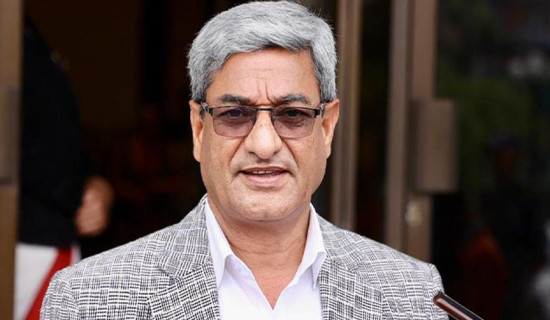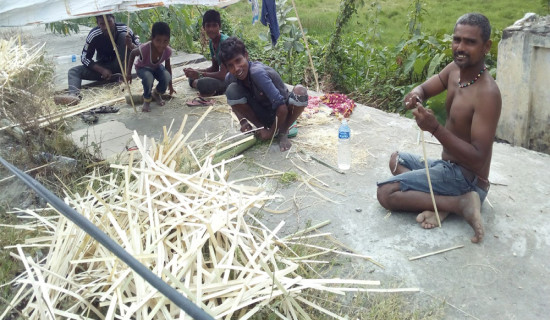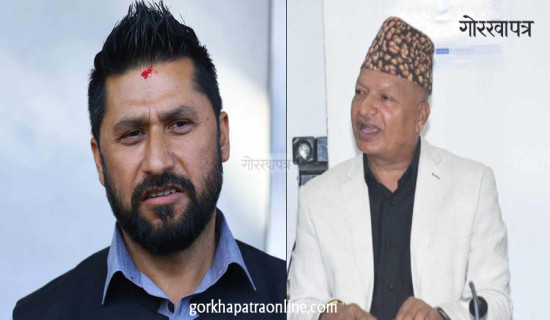- Saturday, 26 October 2024
Oli Government, Honeymoon And Beyond
The current coalition government of the Nepali Congress and the CPN (UML) marks its hundredth day in office today. Formed on 15 July 2024 with KP Oli as the Prime Minister, this government had outlined an ambitious course of foreign policy focusing on elevating Nepal's global stature by pursuing a policy of proactive engagement with neighbouring friendly countries and distant development partners. Nepal's foreign policy strategy under the present administration is to emerge as a resilient and proactive player to navigate the complex dynamics of present-day geopolitics.
When Oli became Prime Minister, he said that his government's foreign policy would focus on safeguarding the country's sovereignty and independence without allowing any external powers to dominate Nepal's foreign policy narrative. This, however, did not imply a disregard for the need to maintain a delicate balance in its relations with its immediate neighbours, China and India. Nepal's relations with India had strained following the map controversy, while its relations with China also faced challenges due to the previous coalition's ambivalent stance on the implementation of the Belt and Road Initiative (BRI), which Nepal had joined through a treaty in 2017. When Oli's government took office, it had the daunting task of restoring and strengthening relations with these key neighbours.
During his previous stint in office, Oli's government made significant progress in implementing the BRI agreement with China, though it was initially signed during Puspa Kamal Dahal's premiership. Building on the foundational agreement, Prime Minister Oli signed several other agreements with China in 2019, focusing on four key areas. The first concerned promoting trade and economic ties, the second involved bilateral economic cooperation and trade, the third provided Nepal access to Chinese sea ports for trade and connectivity, and the fourth focused on infrastructure development, mainly roads and railways.
During his tenure as prime minister, Oli has always stressed a proactive and resilient foreign policy towards India, advocating a dignified win-win approach to dispute settlement. In conformity with this line of thinking, he has stressed that the present differences between Nepal and India on the issue of disputed border territories of Kalapani and Lipu Lake must also be resolved through dialogue. PM Oli has repeatedly said that our differences can and must be resolved on a negotiation table based on agreements, international norms, historical documents, and cartographic records. Recently, PM Oli had a brief sideline meeting with Indian Prime Minister Narendra Modi during the 79th session of the United Nations General Assembly (UNGA) in New York. Though the content of the discussion has not been disclosed, the meeting has definitely contributed to igniting the negotiation process, marking significant steps towards mending the strained ties with the southern neighbour.
During the hundred days of its rule, the KP Oli-led coalition government has actively sought to foster regional cooperation. Nepal has prioritised engagement with regional organisations like South Asian Regional Cooperation (SAARC) and Bay of Bengal Multi-Sectoral Technical and Economic Cooperation (BIMSTEC). Non-alignment has been a cornerstone of Nepal's foreign policy. Being one of the unwavering members of the non-aligned movement, Nepal has maintained a neutral stance, deliberately avoiding alignment with any power country during the time of conflict. The policy of non-alignment has given Nepal a diplomatic leverage to safeguard sovereignty and independence by maintaining balanced policy with all countries, especially neighbours.
While a hundred days is a short span of time for assessing the performance of a government, the Oli government has taken considerable preliminary steps to develop stronger ties with key international partners. During this period, Oli government has reiterated its commitment to implementation of BRI and is also taking a bold step to approach the Indian prime minister with an overture for repairing strained ties between the two countries. After the formation of the new government, Foreign Minister Arju Deuba paid an official visit to India and held discussions with Prime Minister Modi, Foreign Minister S. Jaishankar, and other high-level foreign ministry officials on a range of issues of mutual concern. Her visit marks a positive step in advancing Nepal's relations with India.
During its first hundred days in office, the Oli government has showcased Nepal's foreign policy in light of its geopolitical position. Nepal has expressed its commitment to one China policy and has reassured China by reiterating its commitment to continued cooperation through implementation of the BRI project while taking initiative to bring India on board in recognition of her role as the largest development partner.
In addition to infrastructure development, climate change adaptation has been a major focus of Oli government. In his address at the United Nations General Assembly, Oli drew the urgent attention of the world community to the impact of climate change, particularly for a country like Nepal, which is vulnerable to disasters and environmental changes. During his address, Oli also called for international cooperation in areas of climate change adaptation, resilient infrastructure building, achieving sustainable livelihood practices, and disaster mitigation and management.
A cursory look at the scorecard of the government performance shows that the hundred days of the Oli government are fruitful and worth acknowledging. This period, which is often referred to as "the honeymoon phase," has seen substantive progress in the field of foreign relations alongside achieving economic recovery, promoting social wellbeing, and improving good governance and social stability.
The Oli government has also initiated preliminary work to stimulate public discourse on the issue of constitutional amendment with an aim to make the constitution better align with the aspirations of the people. Given the fact that the international community is also closely monitoring the process of implementation of the constitution, addressing this issue honestly remains one of the priority obligations of the present administration.
The present government has done fairly well in its short-term performance. However, the long-term success depends on its capacity to meet the public expectations for change in several critical areas such as economic equality, good governance, rule of law, accountability to corruption, and employment generation. Equally important is the pursuit of responsible, consistent, and coherent foreign policy that serves the best interest of the nation.
(Dr. Bharadwaj is a former ambassador and former chairperson of Gorkhapatra Corporation. Bharadwajnarad@gmail.com)




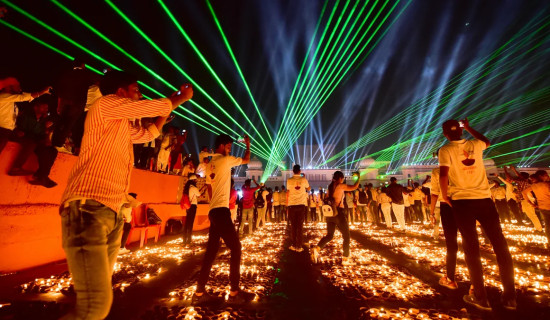

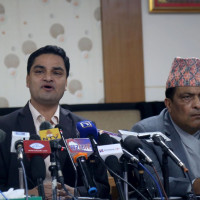
-original-thumb.jpg)
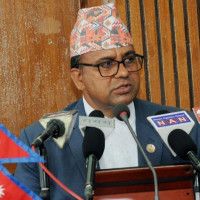
-square-thumb.jpg)
